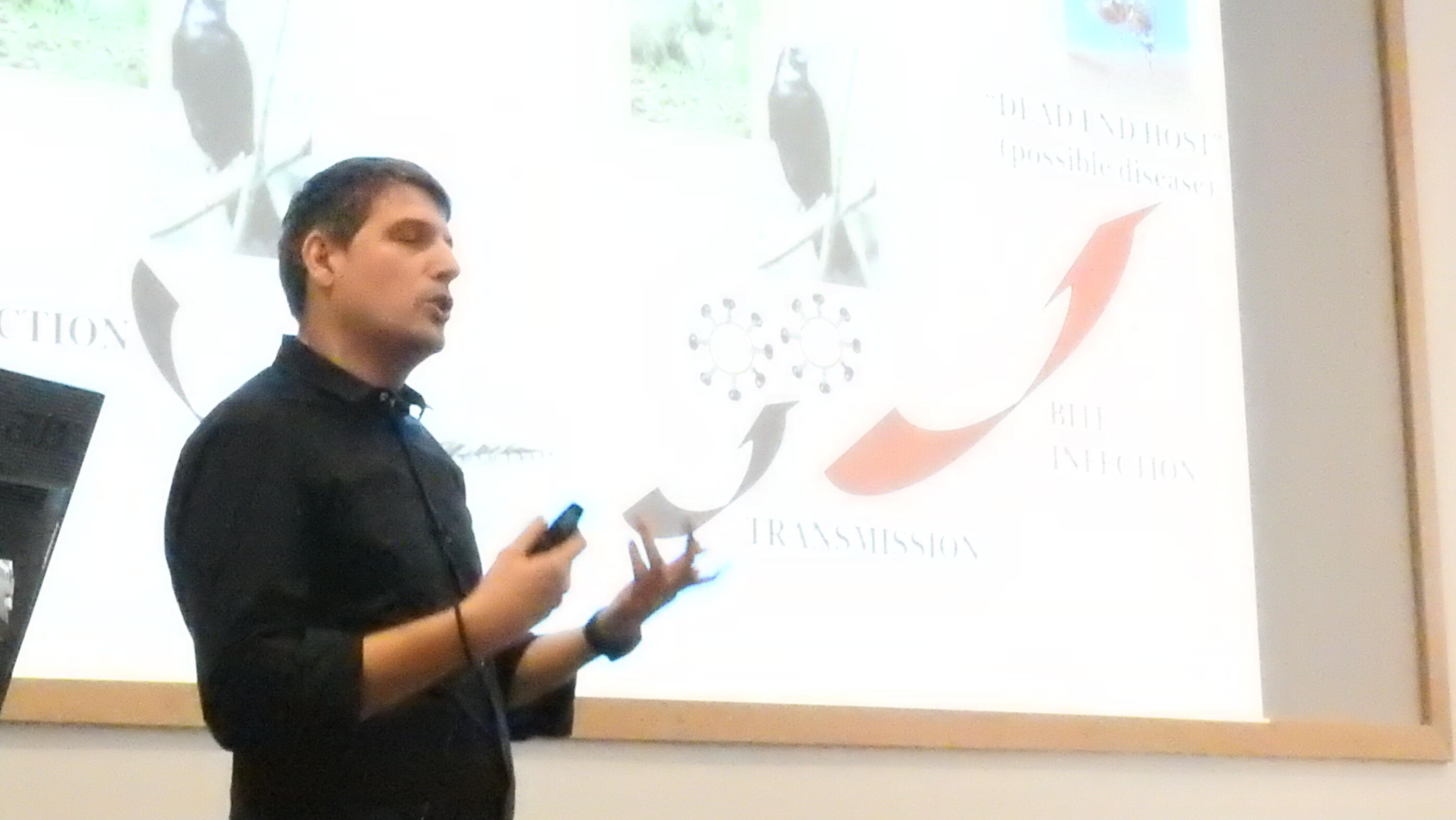
Dr Rennos Fragkoudis
Senior Research Fellow in Arbovirus Pathogenesis.
University of Nottingham
In this seminar, Rennos talked about, determinents of virulence of alphaviruses and virus persistence. He also provided an update on ongoing work to create refractory mosquitoes unable to transmit arboviruses
Rennos Fragkoudis is a virologist whose main research interest is the pathogenesis of arthropod-borne viruses (arboviruses) and in particular of alphaviruses and bunyaviruses. In 2003, he commenced a postgraduate research position at the University of Edinburgh under the supervision of Professor John Fazakerley studying the pathogenesis of Semliki Forest virus (SFV) in mammalian model systems. In 2007 he joined Dr Alain Kohl’s group as a post-doctoral research fellow working on arthropod immune responses (including immune signaling pathways and RNA interference; RNAi) against arboviruses.
In 2012, Rennos initiated his career as an independent researcher by moving to The Pirbright Institute as a Fellow in Arbovirus Pathogenesis. Current research projects include the role of RNAi in controlling arbovirus infections in mosquitoes and ticks, development of improved vaccines against Rift Valley fever virus (RVFV) and the role of lipid metabolism in arbovirus replication in mammalian and arthropod cells. Rennos has authored or co-authored around 20 papers in international peer-reviewed journals as well as presenting his work at international conferences. Since March 2018 he is a Senior Research Fellow in Arbovirus Pathogenesis at the University of Nottingham. He has an established network of collaborators in the UK, Europe and further afield.